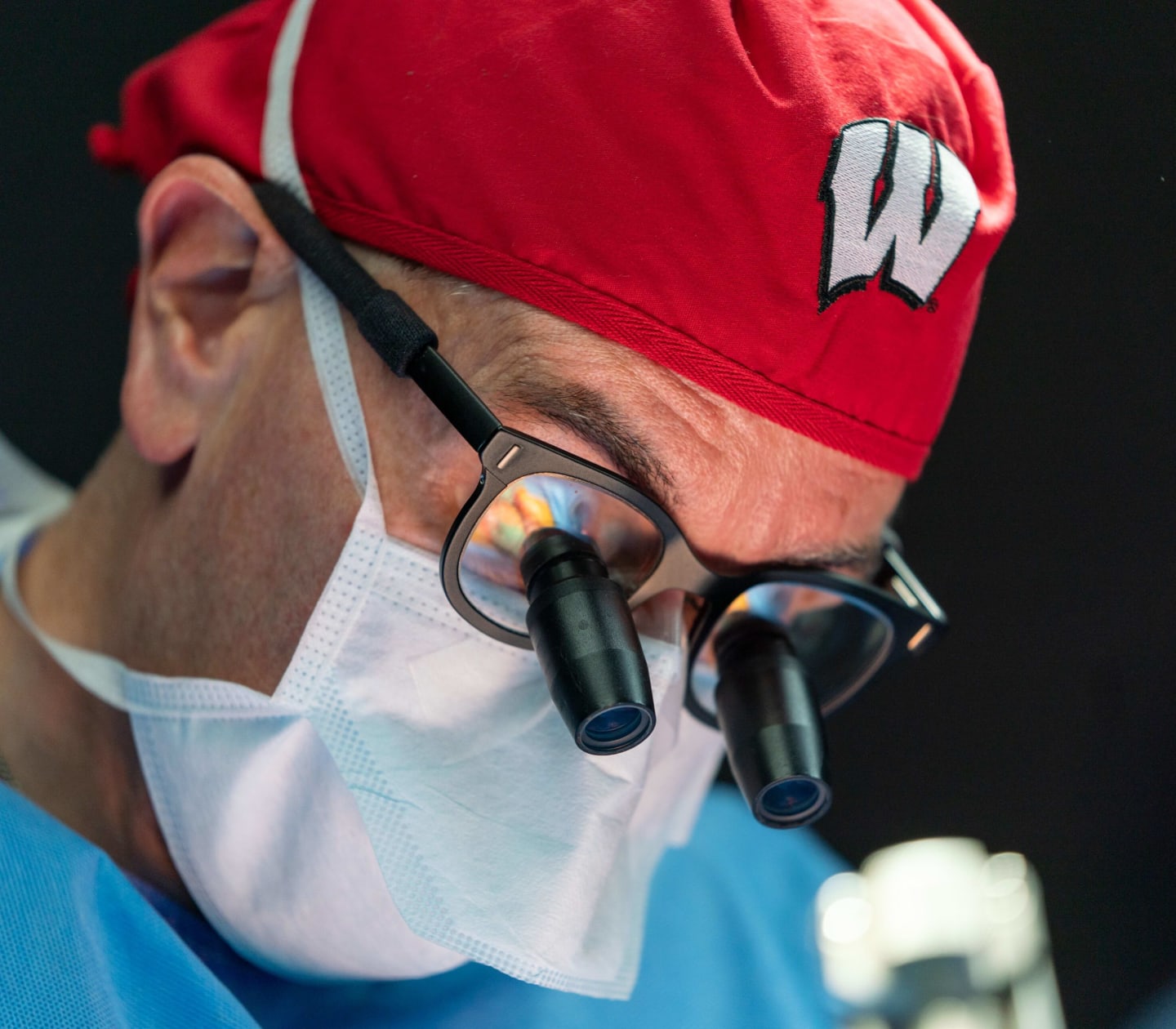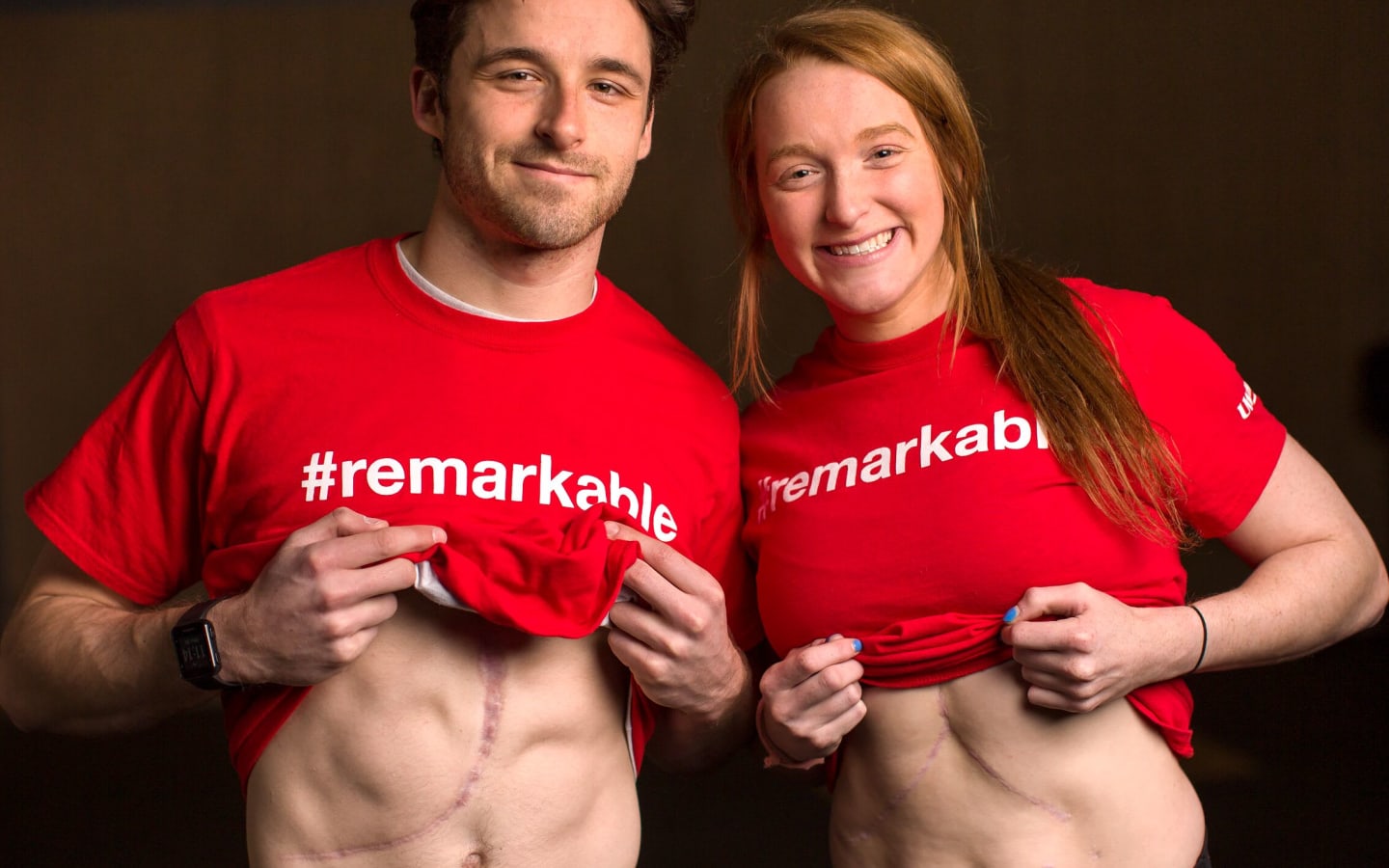After more than 3,000 liver transplants, we have a highly experienced team. We serve patients with complex conditions that other programs would deny, and we maintain excellent patient outcomes.
We offer several transplant options, which makes our waitlist times shorter than the national average. If you are already listed at another center, you can dual list with us to increase your chance of receiving an organ.
We are a Center of Excellence for most insurance networks, a certified living liver donor center for adults and children, and the only adult living donor program in Wisconsin. We are a Veterans Affairs-approved center for liver and multi-organ transplant. U.S. News and World Report ranks us as Wisconsin’s No. 1 hospital.
Our patients are on the waitlist for less time before having transplant surgery compared to other centers.
Our experts perform transplants for patients that many other programs would deny, yet our survival rates remain excellent.

For more than 20 years, our experts have served living liver donors. We are experts in living liver donation and transplantation for adults and children, and are certified to care for directed and non-directed donors. Directed donation means the donor knows the recipient. Non-directed donation means the donor’s liver is matched to someone unknown to the donor.

Our surgeons are experienced in multi-organ transplants. They work with our experts in kidney, pancreas, heart and lung transplant to manage the complex care of patients who need more than one organ transplanted.
At UW Health, we’re dedicated to improving the liver transplant process. We lead studies on new medications, technology, recovery and post-transplant care. Learn more about our transplant research
Living donor liver transplant
Living donor liver transplant happens when a person gives part of their liver to someone who needs a transplant. Within months, the liver inside the donor and the new liver inside the recipient grow to their correct sizes.
Living liver donation has many benefits. These include:
Better survival rates: Patients can get a liver transplant before they become very ill.
Healthier organs: Donors go through rigorous testing to ensure they are healthy enough to donate.
Shortened wait lists: Living donation increases the number of available organs. This shortens the wait list for everyone in need of a transplant.
Saving someone with liver metastasis following colorectal cancer: Our experts serve patients who have colorectal liver metastasis if they qualify for a living liver donor transplant. This procedure treats patients whose colorectal cancer was removed but have liver metastases that cannot be surgically removed.
View our living and deceased donor comparisons (pdf)
Living liver donation is either directed or non-directed. Directed donation means the donor knows the recipient. Non-directed donation means the donor’s liver is matched to someone unknown to the donor.

Deceased donor liver transplant
Many people who need a liver transplant receive their new liver from a donor who has died. Deceased donor organs are matched against transplant waitlists in the region.
Multi-organ transplant
If you need to have other organs transplanted with your liver, our surgeons have the experience you need. We coordinate care between specialists in kidney, pancreas, heart and lung transplantation.
As part of an academic medical center, our focus on research and education will keep you at the forefront of medicine. We will support you throughout your transplant journey. We provide education to you and your support team. We are dedicated to giving you the best liver transplant care.
Parul Agarwal, MD
Gastroenterology and HepatologyDavid Al-Adra, MD, PhD, FACS, FRCSC
Transplant SurgeryDavid Aufhauser, MD
Transplant SurgeryMegan Campbell, NP
Gastroenterology and HepatologyAshley Choudoir, NP
Transplant Surgery (Inpatient Hospitalist)Emily Christianson, NP
Gastroenterology and Hepatology
Liver transplantation is a complex process. Our team focuses on making your experience as seamless as possible. We will all work together to make sure you can return to a good quality of life.
Our team will evaluate you to determine whether you’re a good candidate for liver transplant surgery. During this evaluation, you will meet with a hepatologist (liver specialist) and transplant surgeon. These doctors will talk with you about your medical history. They may order lab work or other tests. You will also meet with a dietitian, a financial consultant, a social worker and your transplant coordinator. This team will answer your questions and offer additional information.

If you are a candidate for liver transplant and you choose to proceed, you will be recommended for a living donor transplant and/or placed on the national waitlist for a deceased donor transplant. The United Network for Organ Sharing (UNOS) operates this list. UNOS matches organs to patients based on blood type, weight and degree of illness. While you wait, you will have regular visits with the UW Health liver transplant team. During these visits, we monitor your condition and provide support and education.

When a liver becomes available, you will be asked to come to the hospital within a few hours. Your surgery will begin soon after you arrive and may take up to 10 hours to complete. You can expect to spend 10 to 15 days in the hospital following your transplant surgery. During this recovery time, you will learn about new medications, self-care and follow-up.
A liver transplant requires lifelong follow-up care. During the first year, you will visit UW Health regularly for bloodwork and tests. These tests determine how well your new liver is working. Over time, your visits will become less frequent. Our team provides lifelong care and support to help you lead a healthy life.
Our liver transplant team serves patients in six locations in Belvidere, Illinois, and Green Bay, Madison, Marshfield, Waukesha, Wausau, Wisconsin.
University Hospital Liver Transplant Clinic
N Bell School Rd Medical Center Liver Transplant Clinic
Bellin Health Bellevue Liver Transplant Clinic
Surgical Associates of Neenah Liver Transplant Clinic
GI Associates Liver Transplant Clinic
Marshfield Medical Center Liver Transplant Clinic
Prevea Allouez Health Center Liver Transplant Clinic
ProHealth Medical Group Liver Transplant Clinic
Our patients share their stories.
We offer many helpful resources for before and after your transplant.
National leaders in transplant care

View more information important to every transplant patient.
Transplant services




